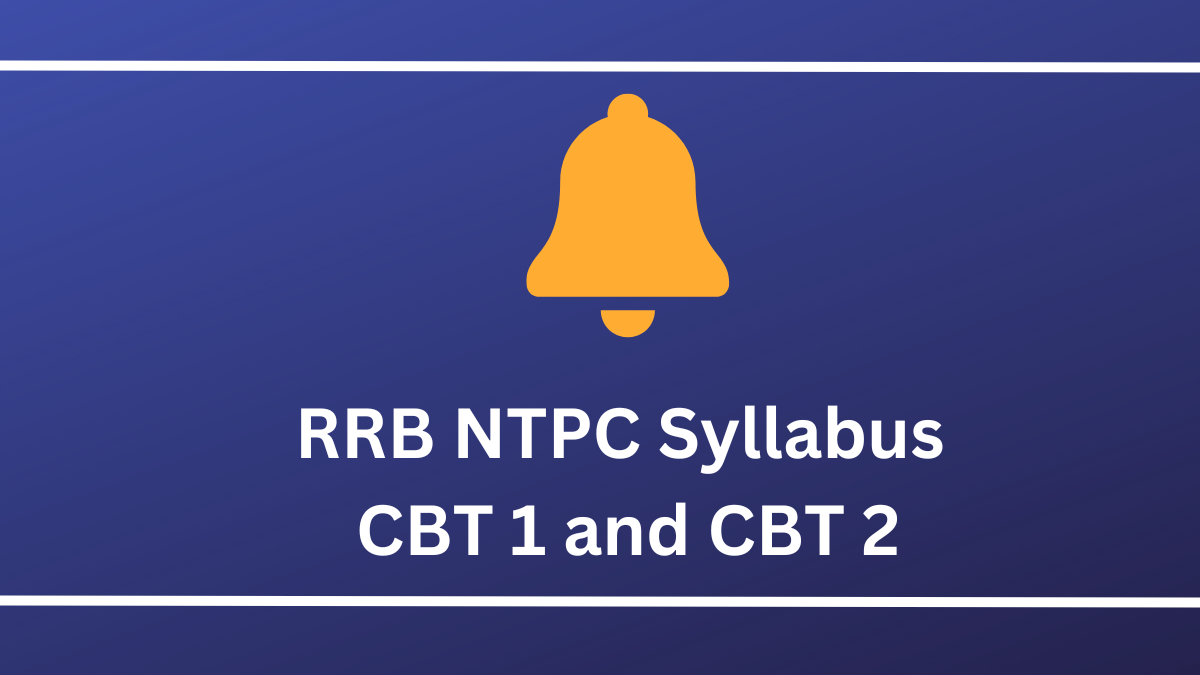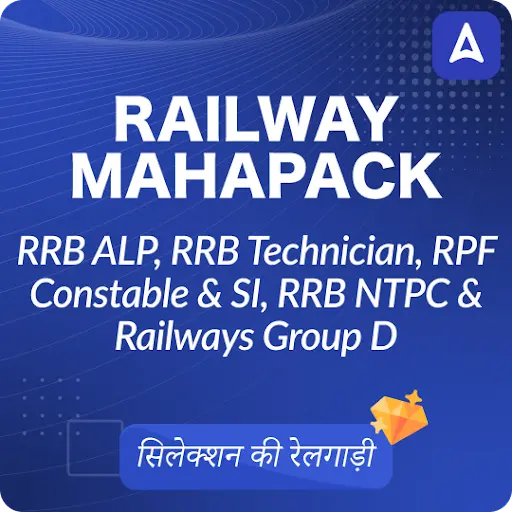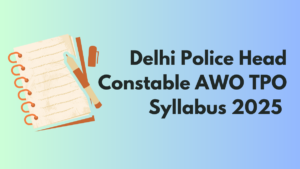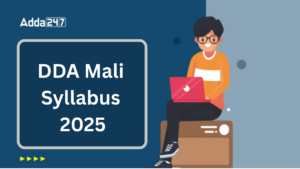Preparing for RRB NTPC requires in-depth understanding of the RRB NTPC 2025 Exam. The Candidates who are aspiring to appear for the RRB NTPC Exam 2025 can understand the syllabus for RRB NTPC 2025 Exam so as to stand well in the process of selection. The RRB NTPC Syllabus for CBT 1 and CBT 2 Exam 2025 can go through the article provided here
The RRB NTPC Exam for Graduate Level is scheduled to be conducted on June 5 to 23, 2025. Candidates are now suggested to boost their preparation so as to stand well in the exam.
RRB NTPC Syllabus 2025
Candidates should know the important details of the RRB NTPC Exam, like the marking system, exam time, and the full syllabus for both CBT 1 and CBT 2. In the CBT 1 exam, there will be 100 questions for 100 marks, and candidates will have 90 minutes to finish the paper. We suggest practicing previous year question papers along with the RRB NTPC Syllabus to improve your score. In this article, we have provided the full list of topics included in the RRB NTPC Syllabus 2025 for both CBT 1 and CBT 2.
RRB NTPC Syllabus 2025: Stage 1
The questions in the exam will be objective multiple-choice and will cover three subjects: General Awareness, Mathematics, and General Intelligence & Reasoning. The difficulty level of the questions will be based on the 12th standards, and no specialization in these subjects is required. The topic-wise syllabus for Stage 1 CBT is detailed in the table below for candidates’ reference.
|
RRB NTPC EXAM Subjects (100 Marks) |
Syllabus of RRB NTPC Topics |
|
RRB NTPC Mathematics Syllabus (30 Marks) |
|
|
RRB NTPC General Awareness Syllabus (40 Marks) |
|
|
RRB NTPC General Intelligence and Reasoning Syllabus (30 Marks)
|
|
RRB NTPC Stage 2 Syllabus 2025
The topics for Stage 2 will be similar to those in Stage 1 but will differ in the marking scheme and exam duration. The difficulty level of the questions will also be higher, focusing more on analytical and decision-making skills. The RRB NTPC Syllabus 2025 for Stage 2 includes the following topics:
| RRB NTPC Subjects (120 Marks) | RRB NTPC Exam syllabus Subject-wise Topics |
|---|---|
| RRB NTPC General Awareness Syllabus (50 Marks) |
|
| RRB NTPC Maths syllabus: Mathematics (35 Marks) |
|
| RRB NTPC General Intelligence and Reasoning Syllabus (35 Marks) |
|
RRB NTPC Syllabus: Subject-wise Breakdown
The subject-wise breakdown for RRB NTPC Syllabus for History, Polity, Geography, etc, is provided in this article. Candidates preparing for the RRB NTPC Exam 2025 can go through the topics mentioned below.
RRB NTPC Syllabus: History
The History subject in the RRB NTPC exam is divided into three categories: Ancient, Medieval, and Modern. It covers a broad range from the prehistoric era to the Indian Struggle for Independence. Candidates should review the specific History topics included in the RRB NTPC exam syllabus to ensure comprehensive preparation.
| RRB NTPC History Topics | Chapters of History |
|---|---|
| Ancient History of India | Pre-historic Period |
| Harappan civilization | |
| The Vedic Civilization & Culture | |
| The emergence of Mahajanapadas & Magadh | |
| Religious Revolution | |
| The Mauryan Empire | |
| The Sangam Age | |
| The Gupta Empire | |
| Post-Gupta Period / Vardhana Dynasty | |
| India After Harsha | |
| Medieval History of India | Rajput Age |
| Sultanate Period | |
| The Vijayanagar Empire | |
| Sufi and Bhakti Movement | |
| The Mughal Empire | |
| Maratha State & Maratha Confederacy | |
| Advent Of Europeans | |
| Modern History of India | Expansion Of British Power |
| Economic Impact Of British Rule | |
| Socio-Religious Movements in the 19th -20th Century | |
| Revolt of 1857 | |
| Moderate, Extremist Phase Of Congress | |
| The Indian National Movements | |
| The Gandhian Era | |
| First Phase Of Independence |
RRB NTPC Syllabus: Indian Polity
Polity consists of various features of the constitution of India, important articles, parts & schedules, constitutional bodies, etc. The following topics are important for preparing for the Polity Syllabus in the RRB NTPC Syllabus 2025.
| RRB NTPC Syllabus for Polity | |
|
|
RRB NTPC Syllabus: Geography
Geography contains questions of two types. The first is the physical geography of India and the world and Human Geography. Here is the detailed syllabus and the names of topics that are covered during the RRB NTPC Syllabus for CBT 1 and CBT 2.
| Geography Syllabus For RRB NTPC 2025 | |
|
|
RRB NTPC Syllabus: Economics
Economics is one of the most important subjects asked in the RRB NTPC exam. It can be classified into microeconomics and macroeconomics. The focus of this section will be on the Indian Economy and its various features.
| Economics Syllabus | |
|
|
RRB NTPC Science Syllabus
Basic Elementary Science is one of the most important subjects, which can be divided into Physics, Chemistry, and Biology. The questions are asked based on the real-life applications of the concepts and the latest developments in the field of science and technology.
| Physics | Chemistry | Biology |
|
|
|
Note: The typing test is only applicable to the candidates who have applied for the posts of Junior Accounts Assistant cum Typist, Junior Clerk cum Typist, Senior Clerk cum Typist, Accounts Clerk cum Typist.
RRB NTPC Syllabus PDF
The RRB NTPC Syllabus PDF is released along with the official Notification by the Railway Recruitment Board. Candidates preparing for the exam can download the NTPC Syllabus 2025 PDF from the official web portal, which contains detailed information about the exam pattern and syllabus.
RRB NTPC 2025 Preparation Tips
Candidates preparing for the RRB NTPC Exam 2025 should follow a well-organized study plan based on the detailed exam pattern and syllabus. Here are some key strategies to enhance your RRB NTPC preparation:
- Prepare detailed notes for each topic listed in the syllabus. This will help reinforce your understanding and serve as a quick reference.
- Use a few trusted study materials and review them multiple times to avoid confusion and information overload.
- Prioritize accuracy over speed in the initial stages of preparation. This helps build a strong foundation.
- Solve past exam papers to understand the type of questions and the exam’s difficulty level.
- Start with sectional tests to focus on specific areas, then move on to full-length tests. This helps identify and improve weak areas.
- Keep track of mistakes made during practice and revise them regularly to avoid repeating them in the actual exam.
- In the final stages of preparation, concentrate on revising key concepts and practicing timed questions to build exam readiness.
- Focus on national and international events from the last six months to one year to prepare for current affairs questions.
- Schedule breaks during study sessions to rest and refresh your mind.






 Delhi Police Driver Syllabus 2025 and Ex...
Delhi Police Driver Syllabus 2025 and Ex...
 Delhi Police Head Constable AWO TPO Syll...
Delhi Police Head Constable AWO TPO Syll...
 DDA Mali Syllabus 2025, Check Exam Patte...
DDA Mali Syllabus 2025, Check Exam Patte...


